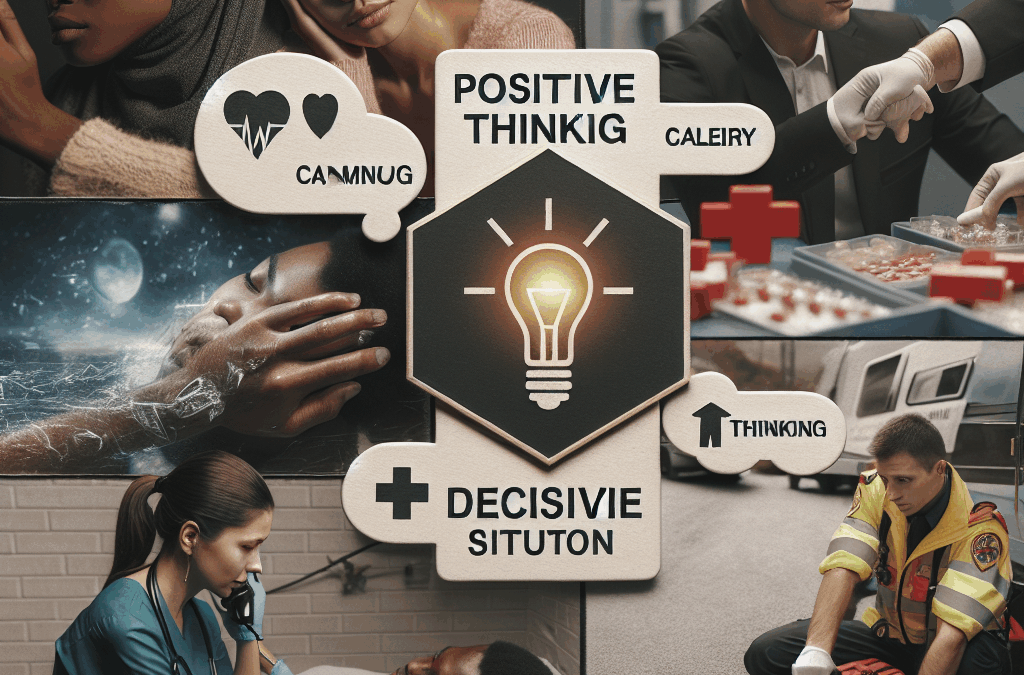Stay Calm and Breathe
Understanding the Power of Breath
When an emergency strikes, our natural reaction might be panic. Trust me, I’ve been there. The first thing you’ve got to do is to hit the pause button. Breathing techniques can help clear the fog of panic. I remember a time when I was in a tense situation; focusing on my breath turned everything around for me.
Calming breaths essentially signal to your brain that it’s all going to be okay. When you exhale slowly, your body recognizes that it’s not in immediate danger anymore. It’s like telling yourself, “I got this!” I often find that inhaling deeply through my nose and exhaling through my mouth does wonders.
Try to implement deep breathing exercises every day, so you’re trained and ready when emergencies happen. Even simply counting your breaths can anchor you back in the present moment. Let this become your go-to strategy!
Reframe Your Thoughts
Identifying Negative Triggers
When trouble looms, our mind can go to dark places. I’ve learned the hard way that recognizing these negative thoughts is crucial. Grab a notebook, jot down your feelings during an emergency. Trust me, it’s validates what you’re feeling.
Reframing isn’t about lying to yourself; it’s about flipping the script. Instead of thinking, “I can’t handle this,” shift to, “I’m learning how to handle this.” This minor change in dialogue can really empower you to tackle the situation. It’s refreshing!
Next, consider the positive aspects of your predicament. For every emergency, there’s an opportunity for growth. Maybe it’s improving your crisis management skills or learning more about your support system. Keep reminding yourself: every cloud has a silver lining.
Thank you for reading this post, don't forget to subscribe NOW for FREE!
Visualize Success
Imagining Positive Outcomes
This might sound a bit cheesy, but visualization has been a game changer for me. When faced with an uncertain situation, I take a moment to vividly imagine a successful resolution. Picture it! What does that look like for you? The clarity really helps.
When you see yourself conquering the issue, you’re setting a positive tone for your actions. It’s like a mental rehearsal that boosts your confidence when faced with obstacles. Plus, I’ve noticed that imagining success reduces anxiety—how cool is that?
Can you envision your ideal outcome? Maybe it’s acing an important presentation or calmly managing a family emergency. Take that picture and hold on to it as a goal. Visualization can often lead to those goals manifesting in reality.
Seek Support
Don’t Hesitate to Reach Out
There’s a common misconception that we have to handle everything on our own. Let me tell you, that’s often not the case. When I face emergencies, reaching out to friends, family, or even professionals helps lighten the load. They can offer perspectives and support you might not even have considered.
Support networks are crucial during crises. I remember a time when I was unsure how to maneuver through a tough situation; talking it through with a friend not only eased my mind but also provided solutions I hadn’t thought of.
Encourage yourself to express your feelings openly. Engaging in constructive conversations can help you realize you’re not alone in your struggles. A listening ear may be exactly what you need to see things in a new light. Keep that connection alive!
Practice Gratitude
The Bright Side in Dark Times
It’s easy to get bogged down by negativity during emergencies, but I’ve found that practicing gratitude helps shift my focus. No matter how bad things seem, there’s always something to be thankful for! Even if it’s just having a place to rest your head that night, acknowledging those wins matters.
Gratitude can alter your perspective. I learned to list three things I’m grateful for every day, even amid chaos. This ritual constantly reminds me that life has its ups and downs, and recognizing what’s good helps create a more balanced outlook.
Consider keeping a gratitude journal. It’s a fantastic tool I’ve used to document positive aspects of my life, especially during tough times. Revisiting those moments fosters resilience and positivity, turning emergencies into opportunities for growth.
FAQs
What is the first step to take during an emergency?
First and foremost, stay calm and breathe. This helps clear your mind and allows you to think more clearly.
How can I reframe my negative thoughts effectively?
Identify your negative triggers and consciously shift your thoughts to a more positive perspective, focusing on your ability to handle the situation.
Does visualization really help in stressful situations?
Absolutely! Visualizing a successful outcome boosts your confidence and reduces anxiety, making it easier to face challenges.
Why is seeking support important during emergencies?
Support from friends and family provides comfort and additional perspectives, helping you navigate through difficulties better.
How can gratitude change my perspective during tough times?
Practicing gratitude helps shift focus from negativity to positivity, enhancing your resilience and outlook on situations.






